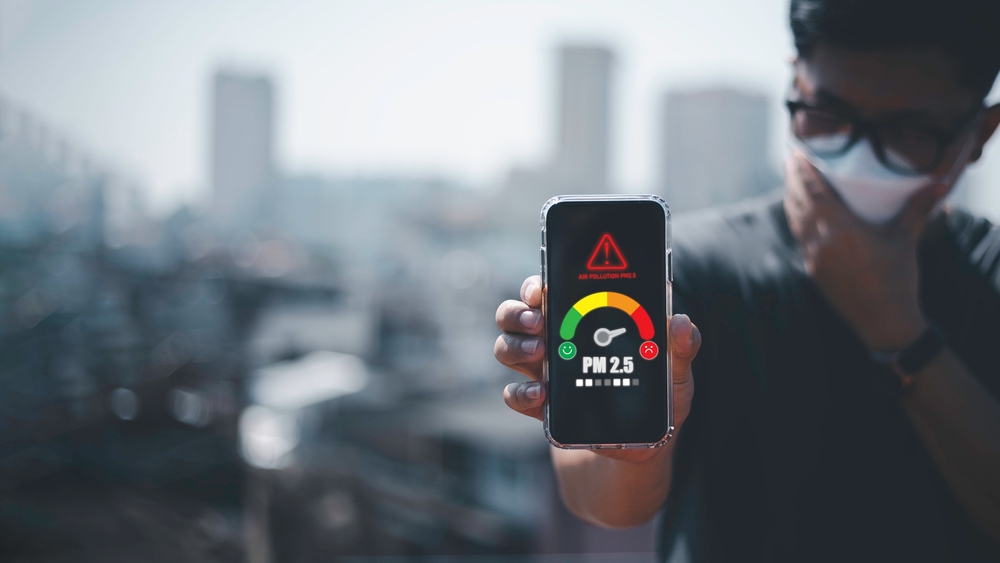Tips on What to Do During an Air Quality Alert

Air pollution has become an increasingly serious problem in many parts of the world, with air quality alerts being issued in some areas. But what is an air quality alert and why should we take them seriously? Air Quality Alerts are given when certain pollutants reach a level that can potentially be harmful to human health. Exposure to these pollutants can put people at risk for developing respiratory diseases, heart disease, and other long-term health issues.
In this article, we’ll discuss how to stay safe during an air quality alert by providing tips on what you should do during such times.
5 Tips for Air Quality Alerts
1. Reduce Outdoor Activities and Exercise: To limit your exposure to pollutants, try to reduce outdoor activities and exercise when an air quality alert is issued. If you do go outside, make sure you take breaks during intense physical activity. This will help reduce the amount of time you are exposed to hazardous air particles.
2. Remain Indoors When Possible: It’s important to stay inside during an air quality alert. Try to limit any outdoor activities and if possible, keep windows and doors closed in order to prevent outside air from entering your home.
3. Adjust Your Home Environment to Reduce Air Pollution Levels: While it may not be possible for everyone, try to adjust the environment of your home to reduce air pollution levels. This can be done by using an air purifier, or even turning off the heating and cooling systems until the alert has been lifted.
4. Wear a Mask Outside To Protect Your Respiratory System: If you have to go outside during an air quality alert, it’s important to wear a mask to protect your respiratory system. Make sure the mask is properly fitted and covers both your nose and mouth.
5. Check Local Forecasts for Updates on Air Quality Alerts: Staying up-to-date with the air quality in your area is essential during an air quality alert. Check local forecasts often, as alerts can change quickly depending on the weather.
By following these tips, you can help protect yourself from air pollution and reduce your risk of developing long-term health problems. Be sure to take air quality alerts seriously and take steps to keep yourself safe. Remember: your health is always worth protecting!
Resources for Air Quality Alerts and More Information
For more information on air quality alerts and how to stay safe during such times, consult the following resources:
1. Government websites: Your local government website is an excellent resource for updates on air quality alerts in your area. Check often for official announcements and health advisories regarding air pollution levels.
2. Local News Outlets: Monitor local news outlets for updates on air quality alerts. They provide up-to-date information on the current status of air pollution levels in your area.
3. Environmental Organizations: Environmental organizations are great sources of information and advice regarding air pollution and air quality alerts in your area. Check out their websites and social media accounts to stay informed about current air pollution levels and how to remain safe.
4. Local Air Quality Monitoring Stations: It’s important to investigate whether your local area has any air quality monitoring stations. This can help you keep track of the current air pollution levels in your area, so that you can take proper precautions when necessary.
5. Speak to Your Health Care Provider: Finally, speak to your health care provider for advice on the potential health risks and precautions you should take during an air quality alert. They can provide guidance on how to keep yourself safe and healthy during such times.
By following these steps, you can help ensure that you remain safe during an air quality alert. Remember to take all necessary precautions to protect your health during such times.
Stay Safe During Air Quality Alerts
Air quality alerts are a reminder of the importance of clean, healthy air for everyone. Understanding the dangers of air pollution and its effects on health is essential to taking action to reduce exposure during an air quality alert, and it’s important to be aware of the potential risks and how to protect yourself.
Things to Remember:
1. Limit any outdoor activities.
2. Adjust the environment of your home.
3. Wear a mask outside to protect your respiratory system.
4. Check local forecasts for updates on air quality alerts.
5. Speak to your healthcare provider for advice.
By taking the necessary steps, you can help protect yourself from air pollution and reduce your risk of developing long-term health problems. Be sure to take air quality alerts seriously and stay safe!